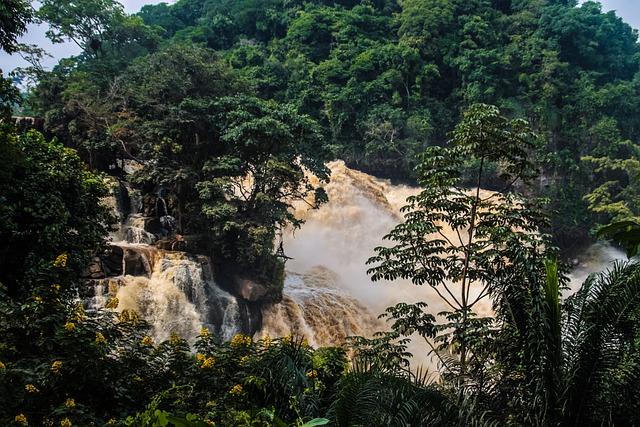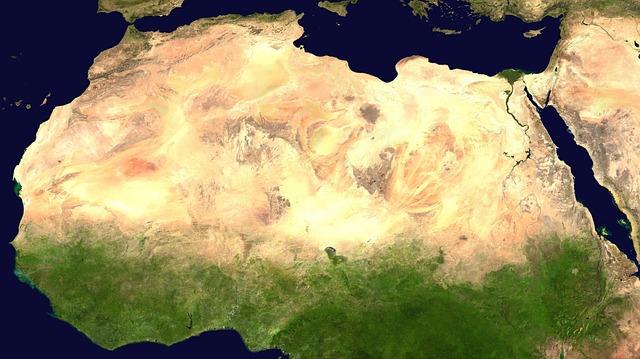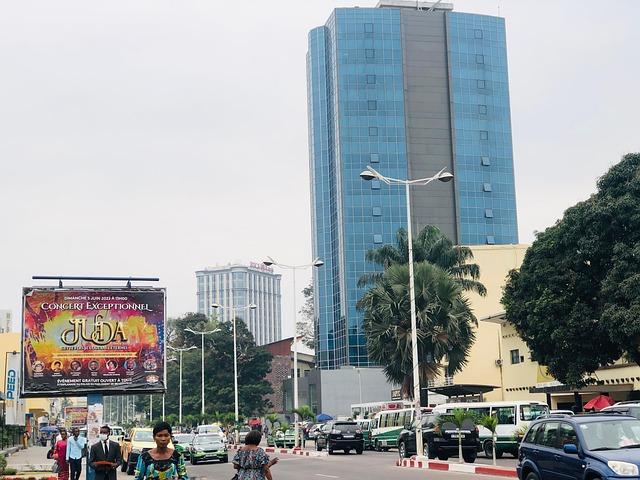introduction
The Democratic Republic of Congo (DRC) has voiced deep concerns over what it describes as the United Nations’ inadequate response to the escalating violence and insecurity caused by the recent capture of Bukavu by the M23 rebel group. In a pointed rebuke, Congolese officials are calling on the international community to take definitive action, arguing that the ongoing situation undermines regional stability and jeopardizes the safety of civilians. The DRC’s denouncement comes amid rising tensions in the eastern provinces, where armed groups have long held sway, and signals a critical moment in the interplay between national sovereignty and international intervention. As the humanitarian crisis unfolds, the DRC’s accusations of UN inaction raise questions about the effectiveness of global peacekeeping efforts in conflict zones.
DR congo’s Accusations Against UN: The Implications of Inaction on Regional Stability

The Democratic Republic of Congo (DRC) has escalated its criticisms against the United Nations, emphasizing that the organization’s perceived inaction regarding the recent capture of Bukavu by the M23 rebel group could lead to dire consequences for the security of the region. Officials in Kinshasa argue that the UN’s inability to respond decisively to this escalating conflict undermines not only local governance but also the broader stability of the Great Lakes region. Such stagnation can embolden various armed factions, perhaps igniting further violence and humanitarian crises that the international community is compelled to address, yet fails to do so effectively.
In light of these events, the DRC government has outlined potential ramifications of a continued lack of intervention by the UN. These include:
- Exacerbation of Humanitarian Crises: Increased displacement and suffering for innocent civilians, exacerbating already dire conditions.
- weakening of State Authority: Further erosion of confidence in the DRC government, risking complete loss of control over affected areas.
- Regional Instability: Possible spillover effects into neighboring countries, affecting peace and security across borders.
Recent discussions have hinted at the necessity for urgent and coordinated international responses, making it clear that the time for action is now to avert a potential crisis that could escalate beyond the DRC’s borders.
Understanding the M23 Movement: Historical Context and Recent Developments

The M23 movement, initially emerging in 2012, has its roots in long-standing grievances related to ethnic tensions, political exclusion, and economic marginalization in eastern democratic Republic of the congo. Formed by former members of the Congrès National pour la Défense du Peuple (CNDP), the group’s name stands for “March 23” to commemorate a peace agreement signed on that date in 2009. However, despite this initial agreement, many of the underlying issues that fueled conflict persisted. Over the years, the M23 has gained momentum, frequently enough fueled by accusations of support from neighboring countries, notably Rwanda. This continued instability has forced the Congolese government to grapple with both internal dissent and external pressures, highlighting the fragile nature of peace in the region.
In recent months,the situation has escalated dramatically,culminating in the M23’s seizure of key strategic areas,including Bukavu. This bold move has prompted a swift and stern response from the Congolese government, which has denounced what it perceives as the UN’s failure to adequately respond to the crisis. The situation is marked by increased civilian displacement, escalated violence, and a growing humanitarian crisis. Observers are closely monitoring the implications of this conflict—not just for the DR Congo, but for regional stability as well. Amid these developments,discussions surrounding the efficacy of international intervention in protracted conflicts like this are more pertinent than ever.
The Humanitarian Crisis in Bukavu: The Impact on Civilians Amidst Conflict

The recent escalation of violence in Bukavu has intensified the humanitarian crisis that civilians face amidst ongoing armed conflict. The M23 rebel group’s control over the region has led to massive displacements and dire humanitarian needs. Thousands of families are now living in overcrowded temporary shelters, with limited access to essential services. Reports indicate a surge in food insecurity, with many grappling to meet their basic needs as local markets are disrupted and agricultural activities come to a standstill. The situation has become even more critical for vulnerable populations, including women and children, who are at heightened risk of violence and exploitation.
The lack of adequate international response exacerbates the plight of these civilians. Humanitarian agencies are struggling to provide assistance amid growing hostilities, and the deterioration of security conditions hampers relief efforts. Key challenges include:
- Limited humanitarian access to affected areas.
- A fund shortage for essential supplies such as food, water, and medicine.
- Increased reports of human rights violations against civilians.
Without a concerted global effort to address the ongoing crisis, the civilian population in Bukavu is facing an uncertain future marred by violence and deprivation. The effective response of the international community, particularly from organizations like the UN, remains critical in mitigating the impact of this protracted conflict on the most vulnerable.
Recommendations for Enhanced UN Engagement: Steps Towards Effective Intervention

The recent developments in the Democratic Republic of Congo have highlighted the urgent need for robust intervention strategies by the United Nations. immediate actions could include a thorough reassessment of existing peacekeeping operations,ensuring that they are adequately resourced and strategically positioned to respond to emerging threats. Furthermore, fostering stronger ties with local government and community leaders can create a more cohesive approach to security that prioritizes local insights and needs. Key steps for the UN could involve:
- Increasing troop presence in key conflict zones.
- Implementing rapid response teams to address crises as they arise.
- Enhancing intelligence-sharing measures with Congolese security forces.
- Facilitating dialogue among conflicting parties to promote peace negotiations.
Additionally,it is crucial for the UN to adopt a more proactive diplomatic stance,emphasizing preventative diplomacy over reactive measures. Forming partnerships with regional organizations such as the African Union could amplify efforts and expand the scope of interventions. Regular assessment meetings and open channels for communication with stakeholders can also ensure that strategies remain adaptable to the constantly shifting dynamics on the ground. A collaborative approach that emphasizes clarity and accountability will be essential for restoring confidence in the UN’s commitment to peace in the region, thus paving the way for sustainable conflict resolution.
| Action | Description |
|---|---|
| Increased Monitoring | Enhancing surveillance of conflict zones to preemptively identify crises. |
| Local Engagement | Building relationships with community leaders for grassroots support. |
| Multilateral Cooperation | Aligning with regional bodies for broader support and resources. |
Regional Responses: How Surrounding Nations Can Support Stability in DR Congo

As the Democratic Republic of Congo (DRC) grapples with escalating tensions due to the M23’s recent advances, neighboring nations play a crucial role in fostering regional stability. These countries can engage through a variety of proactive measures, including:
- Diplomatic Engagement: Strengthening diplomatic ties and facilitating dialogue between conflicting parties can definitely help mitigate misunderstandings and hostility.
- Economic Support: Providing economic assistance, like humanitarian aid and investment in community development, addresses underlying issues that fuel conflict.
- Security Cooperation: Collaborating on intelligence-sharing and joint military exercises can enhance regional security and deter further incursions.
Moreover, the formation of a regional coalition focused on peacekeeping and conflict resolution could significantly augment the efforts of international bodies like the UN. Such a coalition might consider:
| Potential Coalition Actions | Expected Outcomes |
|---|---|
| Monitoring Mission | Increased awareness of ground realities and timely interventions. |
| Joint Humanitarian Initiatives | Improved living conditions for affected populations and reduced grievances. |
| Training Programs | Enhanced capacities of local forces to manage conflicts effectively. |
Future Prospects: Addressing the Root Causes of Conflict to Prevent Further Escalation

as tensions rise following the recent capture of bukavu by M23 forces, it is crucial to understand the underlying factors contributing to the persistent instability in the eastern regions of the Democratic Republic of the Congo. The situation is compounded by a history of ethnic tensions, competition for resources, and a pervasive lack of governance that has created a breeding ground for violence. Addressing these root causes requires a multifaceted approach,including:
- strengthening local governance to promote accountability and foster trust within communities.
- Enhancing economic opportunities through investment in infrastructure and job creation, particularly in marginalized regions.
- Encouraging dialogue among conflicting groups to foster understanding and reconciliation.
- Increasing international support for disarmament initiatives to reduce the prevalence of armed groups in the area.
Moreover, tailored interventions focusing on education and community development can empower local populations and gradually diminish the power of armed factions. A concerted effort by both domestic authorities and international partners is essential to not only address immediate threats but also to create lasting peace. Table 1 illustrates potential avenues for intervention and their expected outcomes:
| Intervention | Expected Outcome |
|---|---|
| Local Governance Training | Improved accountability and trust |
| Infrastructure Investments | job creation and economic growth |
| Community Conflict resolution Programs | Reduced ethnic tensions |
| International Aid for Disarmament | Decreased armed violence |
to sum up
the Democratic republic of the Congo’s strong condemnation of the United Nations’ perceived inaction regarding the capture of Bukavu by M23 rebels underscores a growing frustration within the nation over the prolonged instability in the eastern regions. As the situation continues to evolve, the Congolese government’s calls for a more decisive international response highlight the urgent need for diplomatic engagement and a reassessment of peacekeeping strategies in the area.The implications of this conflict extend beyond national borders,affecting regional security and humanitarian conditions,and may prompt renewed discussions about the effectiveness of international interventions in protracted crises. As stakeholders respond and develop strategies to address these pressing issues, the global community must remain vigilant and supportive in efforts to restore peace and stability in the DR Congo.







